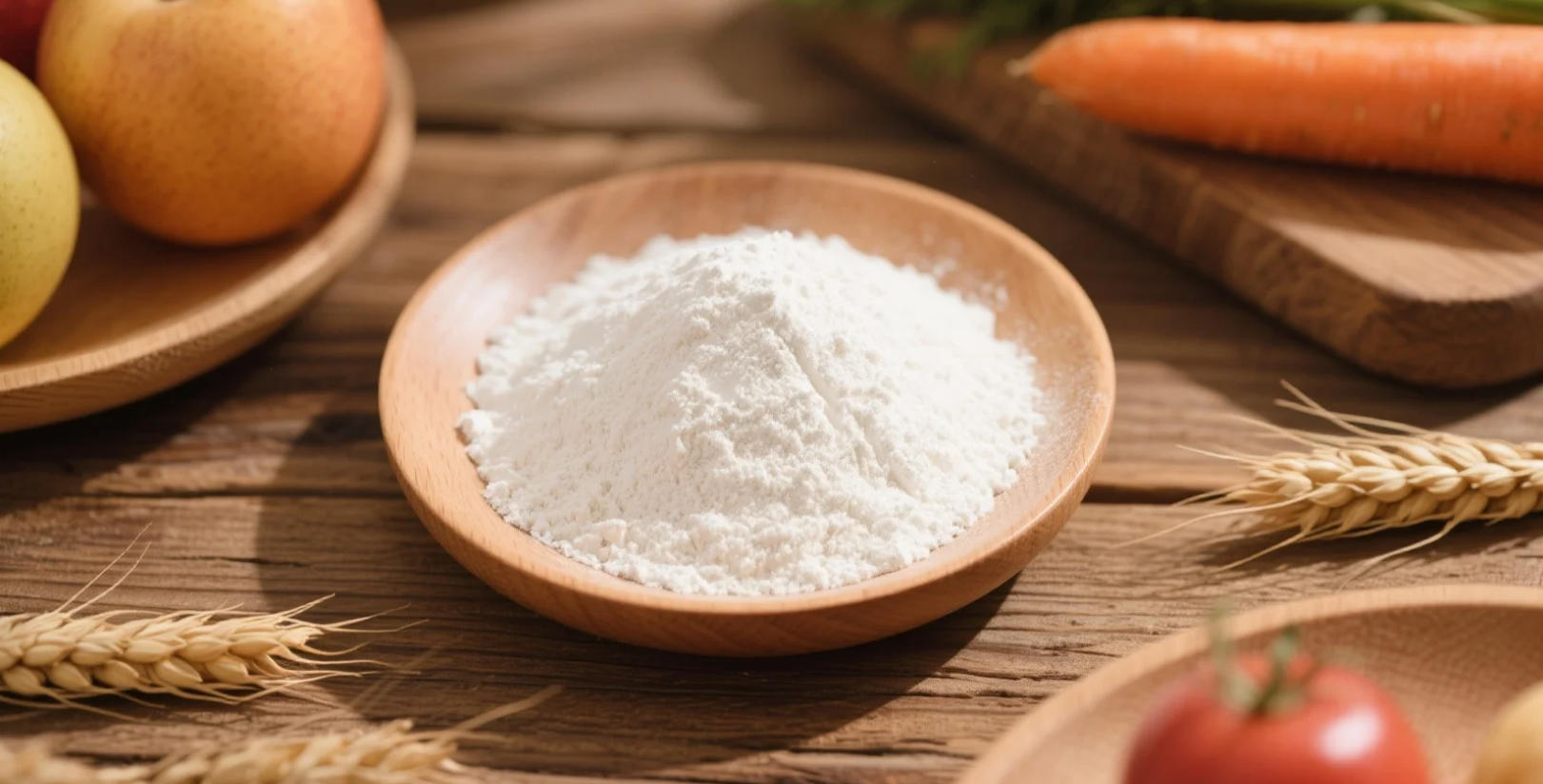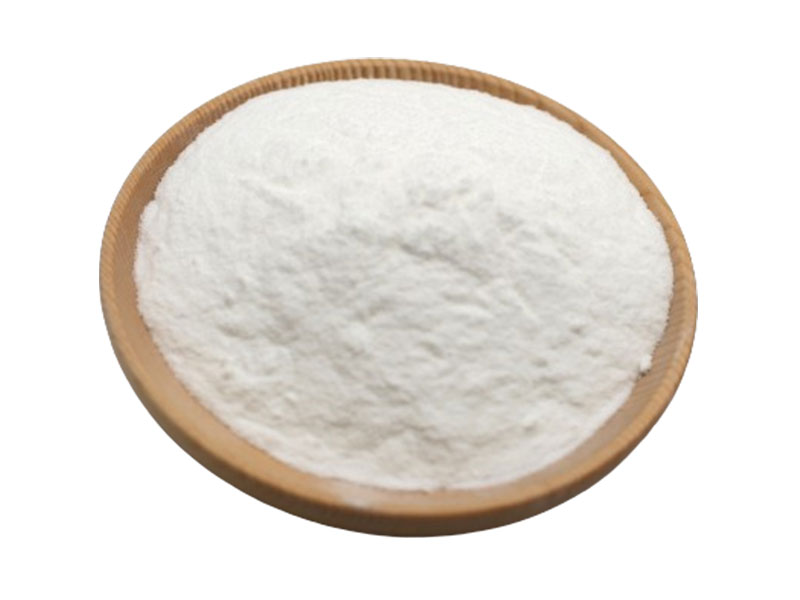The global plant-based food market is expanding rapidly, driven by consumer interest in health, sustainability, and clean-label ingredients. As plant-based brands innovate new products—from dairy alternatives to plant-based meats and snacks—manufacturers need functional ingredients that support product structure, mouthfeel, and stability. One ingredient that meets these needs exceptionally well is organic maltodextrin powder.
Also referred to as organic starch hydrolysate, organic DE 10–12 maltodextrin, or organic glucose polymer, organic maltodextrin is valued for its neutral taste, smooth texture, and ability to improve both processing efficiency and final product quality. This article explores how organic maltodextrin enhances modern plant-based foods and why it has become indispensable in the clean-label movement.
1. Supporting Texture and Mouthfeel in Dairy-Free Products
Plant-based dairy alternatives—such as oat milk, almond milk, coconut yogurt, cheese alternatives, and plant-based ice cream—often struggle to replicate the creaminess and body of traditional dairy. Organic maltodextrin helps manufacturers overcome these challenges by:
- Improving creaminess and mouthfeel
- Providing body and viscosity
- Preventing watery or thin textures
- Enhancing smoothness in beverages and yogurts
- Stabilizing frozen treats to reduce ice crystal formation
Its neutral flavor ensures it does not interfere with the taste profile of delicate dairy-free products.
2. Enhancing Structure in Plant-Based Meats
Plant-based meats require structural integrity to mimic the fibrousness and juiciness of real meat. Organic maltodextrin contributes to:
- Better binding and cohesion in meat analogs
- Improved bite and chewability
- Moisture retention during cooking
- Uniform texture in processed forms such as patties, sausages, and nuggets
- Enhanced color stability in thermal processing
Its compatibility with pea protein, soy protein, and wheat gluten makes it ideal for plant-based R&D teams seeking realistic meat textures.
3. Improved Mouthfeel and Stability in Plant-Based Sauces and Dressings
Creamy plant-based sauces and dressings often require stabilization to maintain a consistent texture. Organic maltodextrin offers:
- Smooth, non-gritty mouthfeel
- Enhanced viscosity and body
- Prevention of oil-water separation
- Better flavor carrier performance
- Stability under heat and shear stress
These qualities make it suitable for plant-based mayonnaise, cheese sauces, dips, and ready-to-eat dressings.
4. Clean-Label and Organic Positioning
Organic maltodextrin is naturally derived from organic starches, offering strong clean-label advantages:
- USDA/EU organic certified
- Non-GMO
- No artificial additives
- Plant-based and allergen-free
- Neutral in color, odor, and taste
Brands can confidently include organic maltodextrin in formulations while maintaining transparency and meeting retail and regulatory requirements for clean-label products.
5. Supports Stability in Plant-Based Protein Powders
Plant-based protein powders—such as pea, hemp, rice, and pumpkin seed protein—often require textural improvement and solubility enhancement. Organic maltodextrin helps by:
- Enhancing mixability in beverages
- Improving instantization properties
- Reducing sedimentation
- Softening the mouthfeel of gritty proteins
- Serving as a carrier for flavors, vitamins, and functional ingredients
This makes it valuable in meal replacements, sports shakes, and functional plant-based beverages.
6. Ideal for Low-Sugar and Better-For-You Plant-Based Products
With increased demand for low-sugar or reduced-sugar plant-based foods, organic maltodextrin serves as a functional ingredient that helps maintain product quality:
- Provides bulk and structure when sugar is reduced
- Enhances flavor perception
- Supports browning reactions in baked goods
- Balances sweetness when combined with natural sweeteners such as allulose or stevia
It allows manufacturers to reduce sugar content without compromising texture or stability.
7. Benefits in Plant-Based Snacks and Bakery Items
Plant-based snacks—such as extruded puffs, bars, crackers, and cookies—require reliable texture control. Organic maltodextrin contributes to:
- Improved crispiness in baked snacks
- Controlled expansion in extrusion
- Reduced breakage and crumbling
- Moisture balance for longer shelf life
- Better uniformity in dough systems
For snack brands aiming for organic certification, it provides both functional and marketing advantages.
8. Processing Advantages for Manufacturers
Organic maltodextrin not only improves final product quality but also enhances production efficiency:
- Excellent solubility
- Consistent bulk density for better mixing
- Reduced clumping and dusting
- Improved flowability in dry blends
- Stable behavior under high heat or shear
These qualities simplify large-scale processing, reduce waste, and support consistent batch results.
Organic maltodextrin powder is a highly versatile and functional ingredient that plays a critical role in the plant-based food industry. From dairy alternatives and meat substitutes to sauces, snacks, and beverages, it enhances texture, body, stability, and overall clean-label appeal.
For manufacturers aiming to deliver premium plant-based products while meeting consumer expectations for organic, sustainable, and high-performance food solutions, organic maltodextrin is an essential ingredient worth integrating into their formulations.
Recommended Product
Organic Maltodextrin Powder
Versatile Clean-Label Carbohydrate for Food, Beverage & Nutraceutical Applications

